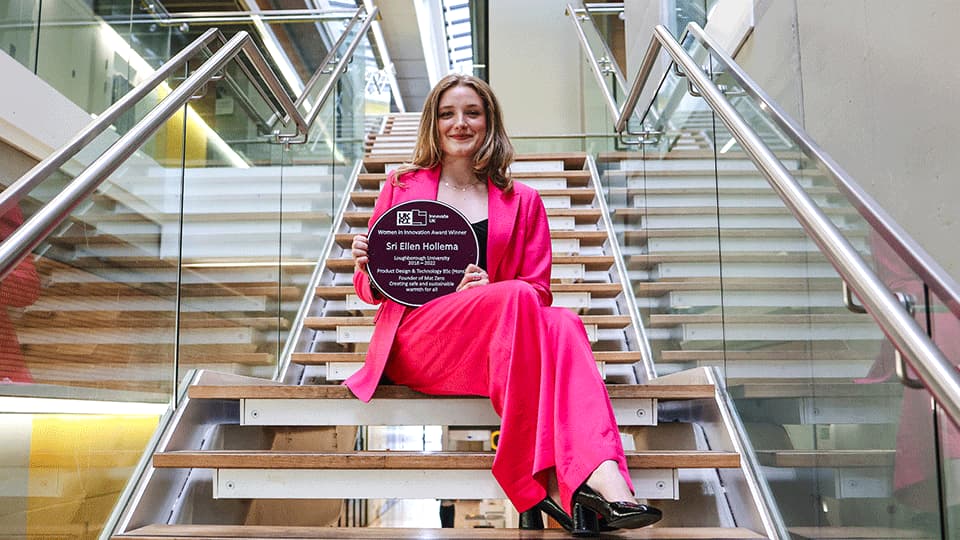It is designed to offer a safe, sustainable source of warmth, the mat is especially valuable in refugee camps and disaster-stricken areas, where access to reliable heating is often limited or non-existent. Following her award, we spoke to Sri to learn more about her design and its potential to transform how vulnerable communities stay warm in times of crisis.
When Sri began her studies at Loughborough, she wanted to use design to address real needs rather than just adding another product to the market. She said:
“Loughborough really enabled that. It is a place that doesn’t just teach you how to design, it pushes you to think about why.
“I had access to outstanding facilities, workshops, and academic support, but more than that, I was encouraged to think critically, test ideas, and develop solutions grounded in real-world need. It gave me both the technical foundation and creative space to turn a concept into something with practical impact.”
Sri grew up in a family working in the humanitarian sector, which meant spending much of her childhood in developing countries. These experiences made her aware from an early age of the kinds of challenges people face in crisis settings.
Her business Mat Zero came out of her final year project at Loughborough, shaped by research into how warmth is delivered in low-resource and emergency settings. She wanted to create something safe, adaptable, and energy-efficient, a heating solution that could work in places where conventional systems are not available. The mat is designed to be flexible and practical and to serve a wide range of users, especially in situations where staying warm is essential to preserving both health and a sense of dignity.
Since graduating in 2022, Sri received funding from the Loughborough Enterprise Network (LEN) which enabled her to set up her business, Mat Zero. She chose to pilot the sleep mat in two rural communities in Nepal - Patneri and Tangting - both of which experience cold conditions and represent low-resource settings where access to safe, clean heating is extremely limited. Sri wanted to see how the mat could perform in real homes, under real conditions, where it could potentially replace or reduce reliance on biomass heating.
She added:
“The testing itself was simple by design. We gave the mats to local families for six weeks and invited them to use them however they liked, to sleep on, sit on, or share with others. We installed small temperature monitors to track heating performance and ambient conditions, and a local volunteer helped us carry out regular technical checks.
“At the end of the trial, we interviewed all participants and gathered direct feedback. The response was overwhelmingly positive. People consistently told us they slept better, felt relief from aches and joint pain, and really wanted to keep the mat. Many said they stopped burning firewood at night – to keep warm Mat Zero did the trick.”
Sri is one of three alumnae who won the award from Innovate UK this year out of only 50 winners from over 1400 applicants.
